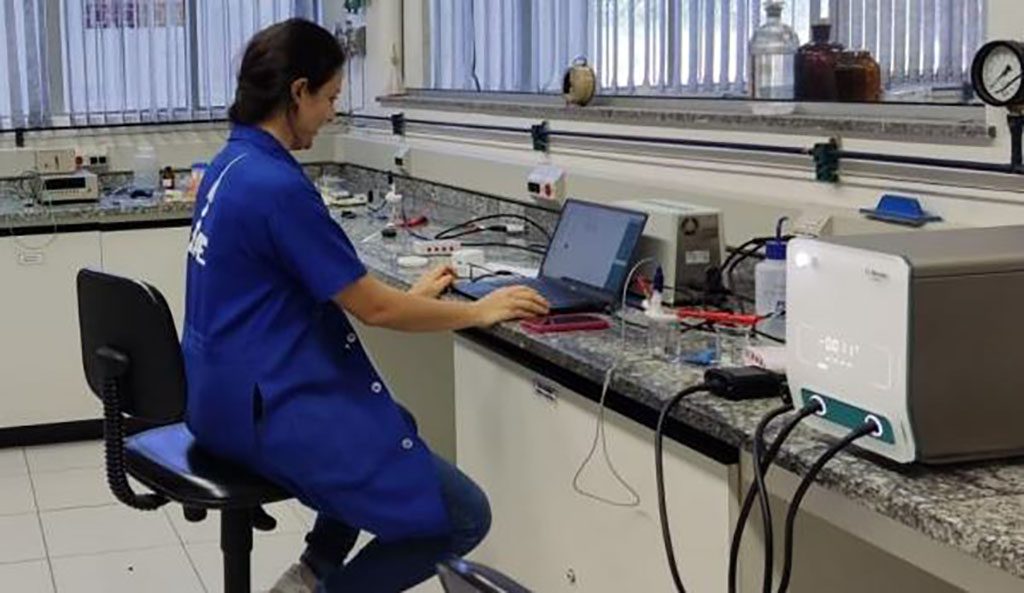It is the first project within COMAER to foster this type of research in the area of high-performance energy storage
Air Force Agency – DCTA, by Lieutenant Alessandra Borges
The project “Development of supercapacitor devices, from 2D and 3D nanomaterial electrodes – Graphene, MXenes and Metal Nano-oxides”, was developed by the Institute of Aeronautics and Space (IAE), part of the Department of Aerospace Science and Technology (DCTA), being the first within the Air Force Command (COMAER) to develop this type of research in the area of high performance energy storage.
The conception of the project is focused on activities that aim at the research and development of materials in the frontier of knowledge and that can offer IAE, the Defense Industrial Base (BID) and the Brazilian Air Force (FAB) separate materials to compose coupled sets of energy storage: supercapacitors and batteries.
For IAE Director, Air Brigadier Frederico Casarino, the unprecedented production of Niobium MXene in Brazil will cause a breakthrough in energy storage systems, establishing countless advantages in the Space, Aeronautics and Defense sectors. “The exponential increase in the charge capacity of batteries and the acceleration of the time required to charge them through supercapacitors will provide new and advanced horizons for the desired autonomy for the air mobility of the future, as well as profusely feed subsystems of space vehicles and defense systems and satellite propulsion,” he said.

The project’s researcher, Professor Emerson Sarmento Gonçalves, after some years of advanced research in the search for materials for energy storage, in partnership with the Aeronautics Technological Institute (ITA), through the Postgraduate Program in Space Science and Technology, paved the way for the development of lithium batteries, making use of modern technologies based on graphene and niobium materials to meet FAB, Aeronautics Industry and IDB.
“The new demands of the technological market have caused a race against time for the development of energy storage systems of the highest performance. Supercapacitors are high-power devices and can work in hybrid fashion with batteries, which supply high levels of energy storage and offer them long life cycles, charge and discharge in seconds, meeting the requirements of high power demand equipment such as electric vehicles, aerospace systems, internet of things systems, among other advanced technologies,” said Professor Emerson, who is developing this research with a team of research fellows and mentors: Milena Arruda, Bianca Palley, Meriene Gandara, André Borges, and Gustavo Souza.

*** Translated by the DEFCONPress FYI Team ***
